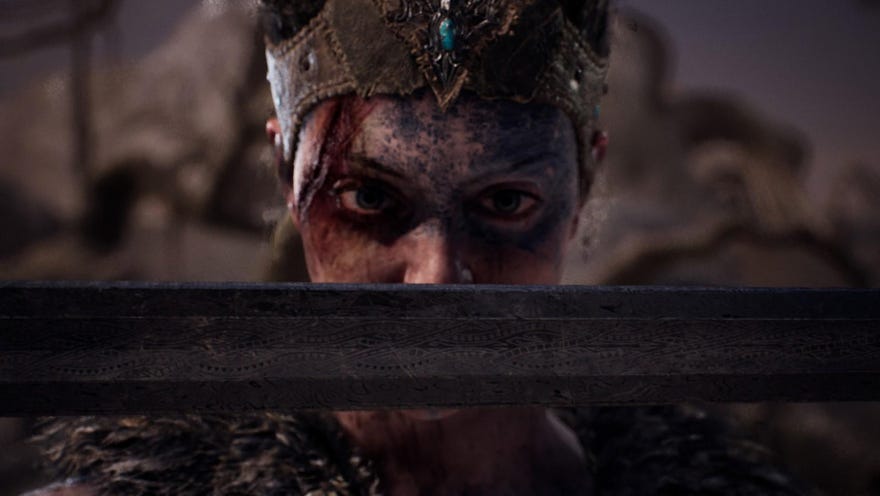Hellblade developers announce a research program using games to tackle mental health
Potentially promising
I’m sceptical of big, commercially-endorsed mental health initiatives with names like “The Insight Project”, which Hellblade developers Ninja Theory announced yesterday. This research program will see them collaborate with Paul Fletcher, a psychiatrist and professor of health neuroscience at the University of Cambridge, to study (and hopefully implement) ways videogames can help people with their mental health issues. Sure enough, their announcement video is largely jargon-laden PR soup that glosses over how this idea is not a new one, and makes the project seem more exciting and useful than it will probably ever be.
I also still think there's a good chance they're on to something, and further reading around their website is more encouraging.
Here's yer overview, then.
Some spurious quotes, there, that initially made me think this is being approached far too nebulously. They're keen to ram home how many people found the realistic depiction of psychosis in Hellblade to be useful, but realistically depicting one specific issue using videogames and helping people with a wide variety of mental health issues are very different things. One doesn't simply follow from the other, as that video implies.
Ninja Theory co-founder Tameem Antoniades talks about how the same advanced technology that draws people to and into games "could equally well be applied to mental well being". The site goes into more specifics:
"It is no longer a pipedream to envisage self-administered, adaptive, individualised, automated approaches that draw on this technology. The opportunity is out there to help bring effective mental health treatments to the mainstream. This coming together of personalised virtual simulations, sophisticated data analysis, and biometric control, encompasses what we term the Insight Project."
And yeah, actually, sure. Biometric feedback involves seeing a representation of your body's physical response to negative stimulus in order to control it, and it's been successfully used to help people deal with stress and anxiety. I can see how a virtual space might enhance that. The website also discusses using games to help people meditate, and has a convincing section where they talk about how they're interested in identifying and alleviating suffering rather than medicalising it.
One of the many approaches their website talks about is using virtual spaces as a way of cutting out noise from biometric signals associated with stress: "With the capacity of games to create precise simulated scenarios – control contexts – we can model ideal settings within which we can do unique experiments on fear, inducing states, recording signals and manipulating immersive contexts such as VR and non-VR settings."
It's interesting, but like I said, none of this is new. ACM Interactions Magazine recently published an overview of attempts to use videogames to help with mental health, citing more specialised projects that cover more or less everything the Insight Project mentions. While broadly promising, they did note that "implementing new technologies and translating knowledge into the clinical context" will be challenging, and it might be wiser to augment existing interventional approaches rather than advocate for new ones. They also point out that gathering data from people playing videogames is suspect, as people often approach games from very different mental states.
The Project's website does take note of that, mind. Overall their approach seems considered and, outside of that video, reasonably cautious. I'm intrigued to see what comes of it.


















